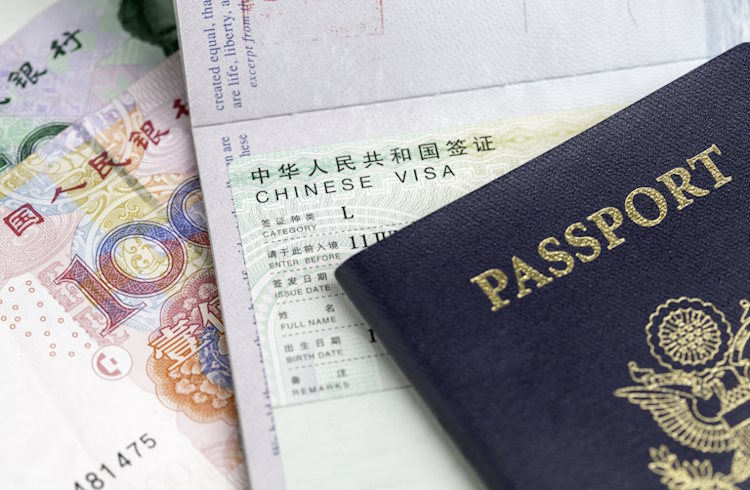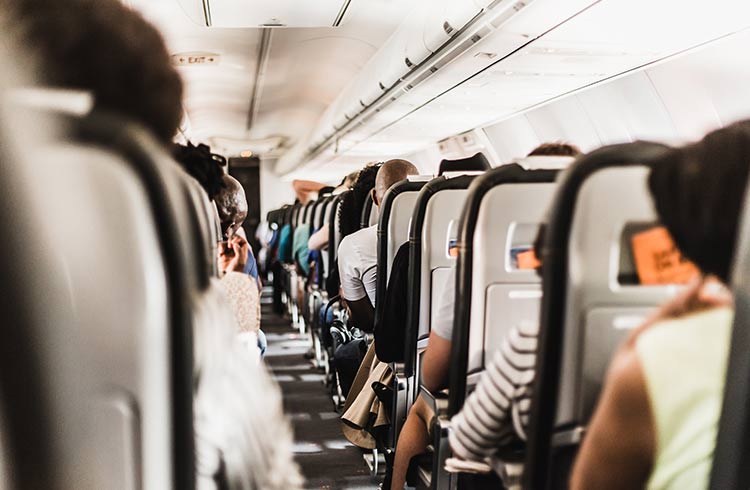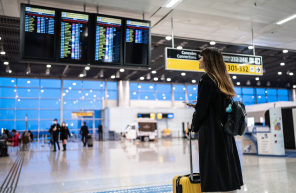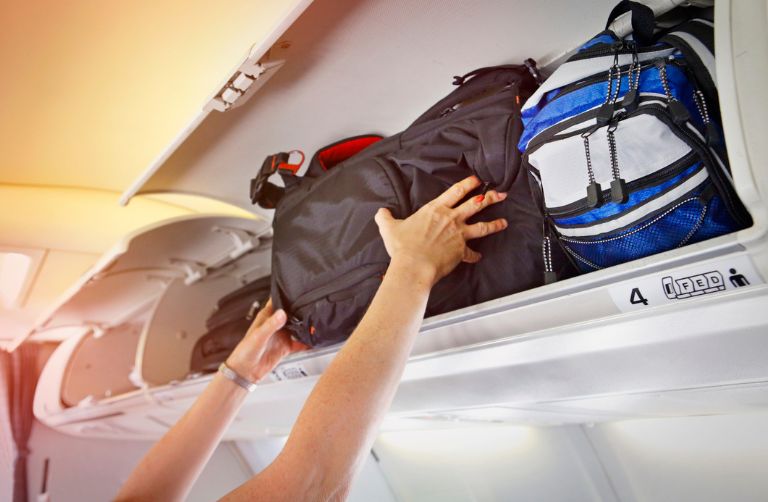What Is a Travel Visa? And When Do You Need One?
Depending on where you’re traveling, a travel or tourist visa may be essential to enter your destination. Find out how to apply for a tourist visa, when you need one, and why overstaying your visa is a bad idea.
 Photo © Getty Images / cglade
Photo © Getty Images / cglade
Tourist visas are important legal documents you must take seriously, or risk getting kicked out at your holiday destination’s border before your holiday has begun. Here’s what you need to know.
- Passport vs visa – what's the difference?
- Visa essentials: How to apply for a travel or tourist visa
- Understanding visa waivers and transit visas
- Overstaying your visa and what to do if it happens
- How and when to extend your visa
- What to do if your tourist visa is rejected
Passport vs visa – what's the difference?
While passports have been around since ancient times, visas granting authorization to travel emerged as important documents little more than a century ago. While your passport is your legal document to prove who you are and certify your citizenship, the visa is your ticket to enter a country as a foreigner under certain conditions.
Be aware governments can and do change the rules around visas at a moment's notice – in some cases, travelers have arrived at their destination to find the rules changed while they were mid-air.
While you can’t prevent a last-minute rule change, it helps to understand how visas work and what you might need to know before you apply for them. For example, many countries (such as Schengen visa countries) require proof of a certain level of travel insurance cover for specific events to obtain a visa.
Visa essentials: How to apply for a travel or tourist visa
Obtaining and completing travel visa forms
To find the form you’re after, start with the government website of the country you’re planning on visiting – that’s where you’ll most likely find all the information you need about visas. Depending on your country of citizenship, you may not need a visa at all to visit a particular destination, or you may be able to get a visa on arrival (meaning, one that is issued at the port of entry at your destination). For example, US passport holders can currently visit more than 180 countries without obtaining a travel visa ahead of time.
If you do need a visa, there are two common ways to apply:
Online: Many countries are increasingly offering visas online – now you can apply for, be granted, and have your visa recorded against your passport details without ever filling out a paper form. Check with your country of destination if they offer this service. A quick scan of your passport (by person or machine) when you get to your destination will reveal whether you have the right to enter a country and how long you’re allowed to stay.
In writing: Some countries still do things in writing – that means obtaining an application form from the local embassy, office, or online, completing it and then submitting it. You may have to attend an interview and submit your passport with the application. Timings range from weeks to months for approvals and vary depending on how busy the embassy or office is. If successful, you’ll be issued official passport stickers or stamps as proof of a successful visa application. Make sure you allow enough time for them to process the visa as you can’t always pay for it to be fast-tracked.
Choosing the right visa
It’s important to choose the right kind of visa for your planned activities. For example, if you’re planning on working at your destination, you’ll need a work visa. Planning on studying? Then you’ll probably need a student visa. Selecting the wrong visa type may see you turned back at the border, held in detention, or sent back home with nothing to show for your getaway. Take the time to read the eligibility criteria for all visas and ask questions if you’re not sure on what is required or what they mean.
Make sure your passport is valid and up to date
No matter what kind of visa you’ve been granted, be sure your passport has several blank pages and at least six months left before it expires, or you may not be allowed to depart your home country. Also, some countries like the US require you to have a passport with an electronic chip to issue visas under their visa waiver program. If in doubt, play it safe and renew your passport.
Supporting information and reference letters for your visa
The information travelers supply when they apply for a visa allows officials to control who comes in (including their health, wealth, and intentions) and what they can do while they’re there.
The COVID-19 pandemic saw a change in the visa rules for many countries. An increasing number require tourists to show proof of travel insurance coverage to get a visa. Cruise ships typically also require passengers to show proof of travel insurance before boarding.
Where and how long you plan to stay
You may need to provide proof of your financial ability to look after yourself for the chosen length of stay, where you’re going, any job offers that your visa is dependent on, or confirmed study at a certain institution. Make sure you have all this information to hand before you submit your application and don’t leave anything out – insufficient information is one of the many reasons visa applications are refused and you may not get a second chance to supply that information later to prove your eligibility.
Letter of invitation
Some countries require you to be invited to the country, and have proof of it, before you apply for a visa. Speak to a travel agent about how you can obtain these or check the relevant government website. Sometimes it’s as simple as booking some travel and accommodation in advance and the letter will follow. Sometimes, a letter from a relative who lives in country you’re visiting or from, say, the organizer of an event you’re planning to attend will suffice. Sometimes it’s a little more official than that and unless you’re a diplomat you probably won’t be getting that visa.
Travel tip: Be aware that travel insurance companies may not cover you for cancellation or trip interruption due to an unsuccessful visa application – consider waiting to book your travel until you’ve gotten confirmation that your visa application is successful, or at the very least that your travel arrangements are fully refundable.

Understanding visa waivers and transit visas
Visa waivers
As a gesture of goodwill, some countries have mutual agreements that allow citizens to come and go between them for holidays, or even work, without obtaining a visa. In some cases, that still means registering for travel but it’s a quick and easy process (usually online), and travel is often valid for much longer than a typical visa. If you come from a country that’s excluded from a visa waiver program, all may not be lost, but you’ll need to apply for a normal visa to match your plans.
Transit visas
Transit visas are designed for travelers passing through a country to get to another destination, and not intending to stay or visit in that country. These can be valid for up to 10 days, or for as little as 24 hours. If you have a stopover but won’t be leaving the airport, find out whether you still need to apply for a visa. Some countries won’t allow you to continue your journey without a transit visa in place, and you might find yourself having to return home at your own expense.
If you’re booking flights with the help of a travel agent, double check any visa advice you receive and take a worst-case approach. A delayed flight that has you missing your connecting flight will make you glad you went to the trouble of applying for a transit visa.
Overstaying your visa and what to do if it happens
Let’s say you’ve turned up at the border ready to exit but it turns out you were having so much fun on holidays that you got your dates wrong, and you’ve inadvertently overstayed your visa. What happens now?
Depending on the country you’re in, you may be able to talk your way out of it, or pay a small fine. But in some countries, it may lead to detention, deportation and/or being banned temporarily or permanently from re-entering the country
What happens if you overstay your visa?
If you can avoid staying longer in a country than your visa permits, do whatever it takes to do so. The penalties can be harsh and impact your travels well into the future. Even if you overstay on medical reasons, you may still find you’re banned from that country in the future.
Generally, the longer you overstay, the longer the period you won’t be allowed back. Fines and imprisonment can also be expected in some countries, even if overstaying your visa by as little as an hour or two. The legal expense and hassle involved in getting yourself out of jail just aren’t worth it.
How and when to extend your visa
Many countries recognize that plans change and allow travelers to extend their tourist visa if they want to stay a little longer – or have to. Just how long that extension is, and whether it’s granted at all, depends on where you are in the world as well as your home country. Apply as soon as you know you might need it.
If you can’t leave a country due to border closures or limited return flights home, there may be temporary visas available to you – and they may even allow you to work. The lingering effects of COVID-19 have led to a range of special visa conditions being introduced throughout much of the world but be sure to allow plenty of time to apply for an extension or special visa.
What to do if your tourist visa is rejected
There are all kinds of reasons your visa application may be refused, including having previously overstayed your visa as mentioned above, and not all of them may seem fair if you’re given a reason at all. Not many countries welcome people who have a criminal record or have previous visa/immigration violations, and some countries will refuse a visa application for such reasons as:
- Your passport is damaged or shows too much wear and tear.
- Failing to show you have booked accommodation in the destination country.
- Not providing all the requested documentation with your application.
- You’ve visited a country the destination country considers hostile, or you’re from a ‘high-risk’ country yourself.
- You’re not considered of good moral character.
What’s “good moral character”, you may ask? That depends on the country making the decisions. Even if you don’t have a criminal record, if you’ve been subject to a domestic violence order, have failed to file or pay taxes, are guilty of adultery, or have violated controlled substance laws, a government may consider they have reason enough to refuse you entry.
If you fall into these categories, give yourself plenty of time to get your visa and address any queries along the way. If you’re refused, you may be able to reapply again with more information to help your case or appeal the decision.



No Comments